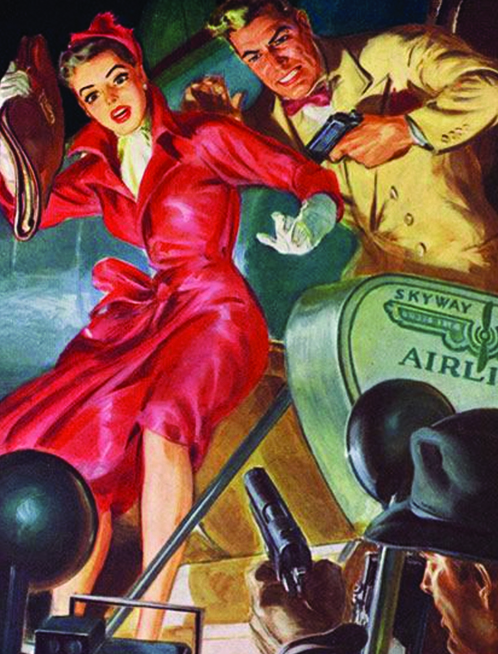
- This event has passed.
Fridays As In Murder: Women, Violence & Genre Formulas

Convened by Jacqueline Cantwell
Fridays, 6:00 to 8:00
10 meetings, November 10 through January 26
No session on Friday, November 24 or December 29
In traditional hard-boiled and crime novels, women either provoke violence as femme fatales or need protection as paying clients or wandering daughters. Some authors were dissatisfied with this pulp convention and worked in an extension of pulp, film noir, writing scripts with more complicated women. Drawing upon the potentials of film noir’s formula of restlessness, dread, and discontent within social corruption, women novelists wrote of threats to the domestic sphere and American society emerging as the global hegemon. As women’s opportunities improved and the conventions of the detective novel changed, women writers explored crime and violence resulting from the racism and class exploitation while some male authors began writing of more complicated women.
Our Friday readings will consist of the following:
Attica Locke, The Cutting Season
The body of a migrant worker is found on the grounds of a former plantation turned into an historical amusement park, complete with slave quarters. Outside the plantation, the hard-pressed owners of sugar cane fields are selling their land to a corporation that relies upon undocumented migrants. A mystery from the time of slavery parallels the modern murder.
Dorothy B. Hughes, The Expendable Man
Driving toward Phoenix, Densmore sees a young white woman hitchhiking. Even though he knows that a black man should not offer a white girl a ride, he fears for her safety. Then, he gets charged with her murder. Complicating his lackluster defense is that the woman has died from complications of an illegal abortion and he is a medical student.
Jean-Patrick Manchette, Fatale
Can a man portray a woman with a gun differently? Maybe when by Manchette. A woman comes to town to kill the corrupt. Stripped down language. Bloodier than Red Harvest. Manchette brought politics back to French thrillers.
Nina Revoyr, Lost Canyon
Four hikers whose ethnic and cultural backgrounds represent a diverse Los Angeles get lost in the mountains and find a murder. Moving effortlessly between city and wilderness, Lost Canyon explores the ways that race, class, and culture shape experience and perception while examining the choices good people must face in desperate situations.
Jacqueline Cantwell has explored the depths of crime fiction along with the heights the desperate will often want to throw themselves from. These fictions will lay bare many of the facts of the cold as ice killings and cover-ups present in a modern world where we are expected to behave better—but very often do not. What better night than Fridays in Autumn for murder and mayhem.
